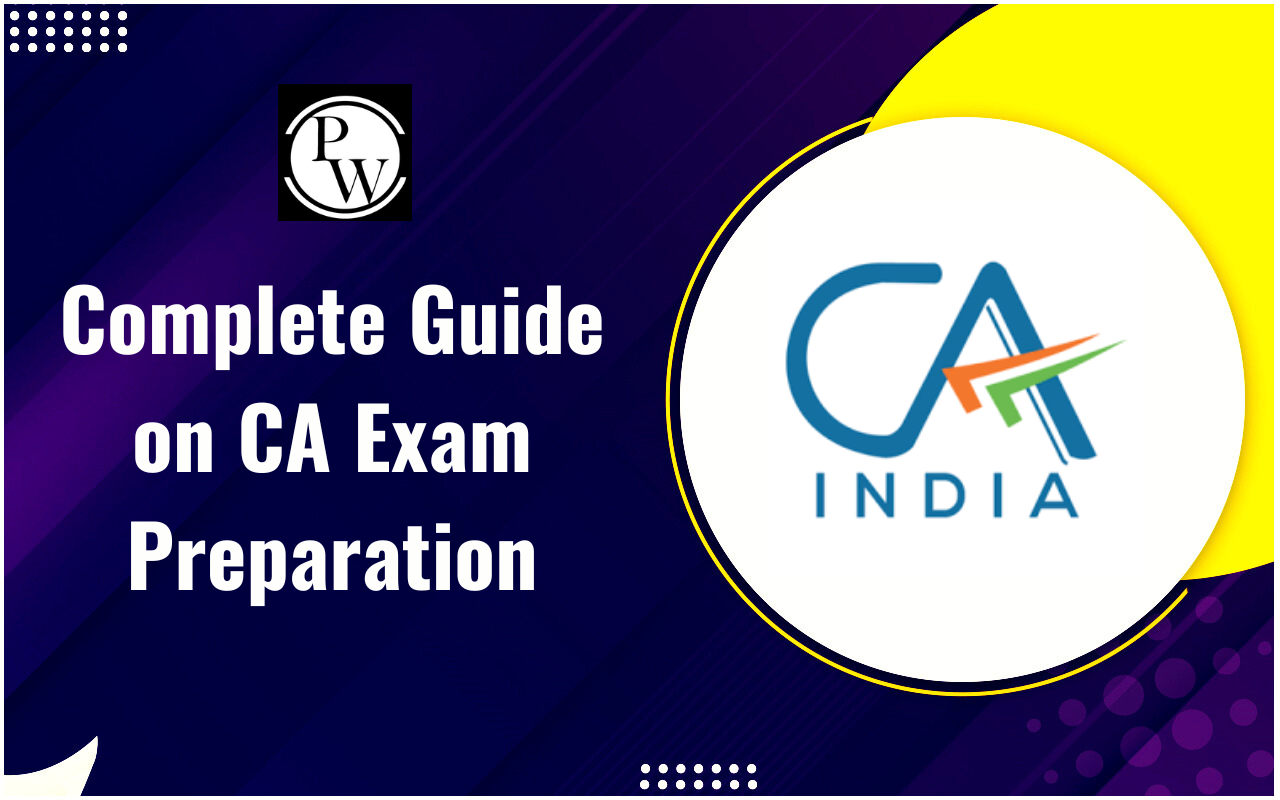

ACCA Vs CA: Choosing between CA and ACCA depends on your career location. CA (Chartered Accountant) is the ultimate authority in India, focusing deeply on Indian tax laws and requiring 3 years of mandatory articleship. It is tougher, but it grants the right to perform statutory audits locally.
ACCA (Association of Chartered Certified Accountants) is a global qualification accepted in over 180 countries, focusing on international standards (IFRS). Graduates often get exemptions, making it faster to complete (2–3 years). Choose ACCA for global mobility and flexible exams, or CA for high-value domestic expertise and authority in India.
What is ACCA?
ACCA stands for the Association of Chartered Certified Accountants. It is a very big accounting body in the world. The main purpose of what is ACCA is to offer a qualification accepted globally. This course teaches international accounting rules. You will study finance, law, and management skills. It is highly valued in over 180 countries.
What Is CA?
CA stands for Chartered Accountant. In India, the ICAI (Institute of Chartered Accountants of India) runs this course. CA is the most respected accounting degree in the country. It gives you a deep understanding of Indian tax laws. A CA must sign company audit reports in India. This makes the qualification very powerful locally.
ACCA Vs CA
Both courses aim to make you a skilled finance professional. They cover similar subjects like financial reporting and auditing. The CA course is focused on the Indian economy. The ACCA course is focused on global business rules.
Difference Between ACCA Vs CA
The difference lies mainly in location and focus. ACCA provides a global qualification focusing on international standards. CA is highly specific to India, mastering local tax laws and audit rules.
|
Difference Between ACCA Vs CA |
||
|
Feature |
ACCA (Association of Chartered Certified Accountants) |
CA (Chartered Accountant) - India (ICAI) |
|
Focus |
International Accounting (IFRS) and Global Tax |
Indian Accounting Standards and Indian Tax Law |
|
Global Reach |
High acceptance in 180+ countries |
Primarily accepted in India |
|
Exams |
13 papers (exemptions are possible) |
3 levels (Foundation, Intermediate, Final) |
|
Training |
3 years of Practical Experience Requirement (PER) |
3 years of Mandatory Articleship/Practical Training |
|
Exam Schedule |
Four times a year (March, June, September, December) |
Twice a year (May and November) |
Eligibility Criteria for ACCA and CA
ACCA and CA are popular professional accounting qualifications in India and across the world. Each has unique eligibility rules for students and working professionals. The table below shows the main eligibility criteria for both exams in 2025
|
Eligibility Criteria for ACCA and CA |
|||||
|
Course |
Minimum Education |
Marks Required |
Age Limit |
Stream |
Other Information |
|
ACCA (India/Global) |
10+2 (Class 12) |
65% in Maths/Accounts & English, 50% in other subjects |
18 years |
Any stream |
Graduates eligible, up to 9 paper exemptions for CA/CMA |
|
CA (India) |
10+2 (Class 12) |
No minimum marks required (pass in Board exams) |
No age limit |
Any stream |
Also open to graduates; Direct Entry for degree holders |
Course Duration: ACCA Vs CA
ACCA and CA courses take different amounts of time to complete. The time depends on your education, exam attempts, and exemptions. The following table gives a simple comparison for students in India in 2025.
|
Course Duration: ACCA Vs CA |
|||
|
Course |
Usual Duration |
Duration with Exemptions |
Notes |
|
ACCA |
2–3 years (after 12th), 3–4 years part-time |
1–2 years (if you have relevant degree or CA) |
13 papers; Exemptions for B.Com, CA Inter, CA Final; Flexible exam schedule |
|
CA |
4.5–5 years (after 12th), 3 years after graduation |
No exemptions; shortest for direct-entry graduates |
3 stages (Foundation, Inter, Final); Articleship takes 3 years |
ACCA Vs CA: Syllabus
ACCA and CA both teach accounting stuff for jobs. ACCA has three levels – Knowledge, Skills, and Professional – and it talks about international rules and modern topics. CA also has three levels – Foundation, Intermediate, and Final – and it focuses more on Indian rules, taxes, auditing, and ethics.
|
Syllabus ACCA Vs CA |
||
|
Feature |
ACCA |
CA |
|
Course Duration |
2-3 years |
4-5 years |
|
Syllabus Focus |
Global accounting, IFRS, auditing, tax, finance, sustainability |
Indian accounting, tax laws, auditing, compliance |
|
Exam Flexibility |
Exams 4 times a year, flexible schedule |
Fixed exam schedule, tough exams |
|
Global Recognition |
Recognized in 180+ countries |
Mainly recognized in India |
|
Career Options |
Multinational companies, global finance |
Indian corporates, taxation, auditing |
ACCA Vs CA: Exam Structure and Passing Criteria
ACCA and CA exams are different. ACCA has 3 levels with 13 papers, all on the computer, and you need 50% in each paper to pass. CA has 3 levels too – Foundation, Intermediate, and Final – with both multiple-choice and written questions. You need 40% in each subject and 50% total in a group to pass.
|
ACCA Vs CA: Exam Structure and Passing Criteria |
||
|
Feature |
ACCA |
CA |
|
Exam Levels |
Knowledge (3 papers), Skills (6 papers), Professional (4 papers) |
Foundation, Intermediate, Final |
|
Exam Mode |
Computer-based (CBT) |
Computer-based (CBT) |
|
Exam Frequency |
4 sessions/year (Mar, Jun, Sept, Dec) |
Foundation & Inter: 3 times/year; Final: 2 times/year |
|
Question Types |
MCQs, Objective tests, Case studies, Long-form questions |
Objective & Subjective questions |
|
Passing Marks |
Minimum 50% per paper |
Minimum 40% per subject + 50% aggregate per group |
|
Work Experience |
Minimum 36 months' relevant experience needed |
3 years articleship required for full qualification |
ACCA Vs CA: Global Recognition
Global acceptance is an important thing to look at. This helps you choose ACCA Vs CA.
-
ACCA has great global standing. It is a true 'global' qualification. It opens job doors in major financial cities worldwide.
-
CA has high value and respect in India. Its recognition is limited in many countries outside of South Asia. A CA may need to pass extra papers to work abroad.
Career Opportunities After ACCA and CA
Both ACCA and CA offer diverse career paths in finance and accounting. ACCA offers global roles in multinational firms, focusing on international standards and finance functions. CA mainly serves Indian companies with roles in audit, taxation, and regulatory compliance.
|
Career Opportunities After ACCA and CA |
||
|
Feature |
ACCA Career Opportunities |
CA Career Opportunities |
|
Job Roles |
Financial Analyst, IFRS Consultant, Auditor, Tax Specialist, Risk Analyst |
Statutory Auditor, Tax Consultant, CFO, Internal Auditor, Cost Accountant |
|
Industry Focus |
Global MNCs, international banks, consulting firms |
Indian corporates, government audits, tax firms |
|
Work Location |
Worldwide |
Mainly India, some South Asia |
|
Salary Range |
Starting ₹5-7 LPA higher abroad |
Starting ₹6-8 LPA higher in India |
|
Career Growth |
Strong international mobility, varied roles |
Strong Indian domestic market presence |
ACCA Vs CA: Salary and Growth Prospects
ACCA and CA professionals both enjoy good salary packages and growth opportunities. ACCA salaries are often higher abroad due to global recognition and international job roles. CA salaries are competitive in India, with strong growth potential in the corporate finance, auditing, and taxation sectors.
|
ACCA Vs CA: Salary and Growth Prospects |
||
|
Feature |
ACCA Salary and Growth |
CA Salary and Growth |
|
Starting Salary |
₹5-7 LPA in India; higher abroad (up to ₹15 LPA) |
₹6-8 LPA average in India; high in top jobs (₹20+ LPA) |
|
Growth |
Good international mobility and roles across fields |
Strong growth in Indian finance, senior leadership roles |
|
Job Market |
Multinational banks, consulting, global firms |
Indian corporates, audit firms, government roles |
|
Long-term Potential |
Global CFOs, finance directors, consultancy leaders |
Senior CAs, CFOs, tax advisors, company secretaries |
ACCA or CA: Which is Easier?
Ease is measured by passing rates and exam flexibility. CA is widely considered tougher due to its large syllabus and low pass rates, making it a longer, more challenging journey. ACCA is often seen as more manageable because of exemptions for graduates and frequent exam sessions, allowing more chances to pass.
-
CA is widely considered more difficult. The high volume of subjects is a challenge. The tough pass rates make it a very long journey.
-
ACCA is often seen as more manageable. This is because of the exemptions for graduates. The frequent exams also give more chances to pass.
Choosing the Right Course Based on Your Goals
Choosing the right course depends mainly on your career goals and where you want to work. Being clear about your personal aspirations will help you decide which course ACCA or CA is the best fit.
-
Choose CA if you want to build a career only in India with deep knowledge of Indian audit and tax laws. It is the gold standard for Indian accounting and legal compliance.
-
Choose ACCA if you want to work outside India or in multinational companies, as it offers a global career path and is recognized in over 180 countries.
-
Understanding ACCA shows its focus on international financial standards and sustainability, making it ideal for global finance roles.
-
CA requires mandatory articleship and focuses more on Indian regulations, making it less flexible but crucial for local expertise.
-
ACCA offers exam flexibility, exemptions, and faster completion options, suitable for those seeking wide geographic mobility and diverse job profiles.
Benefits of ACCA Vs CA
Both ACCA and CA offer valuable benefits that boost your career in finance and accounting. ACCA provides global opportunities with flexible study options, while CA is the top authority in India with strong local expertise and high salary potential.
|
Benefits of ACCA Vs CA |
||
|
Benefits |
ACCA |
CA |
|
Global Jobs |
Recognized across 180+ countries; global firms prefer ACCA |
Primarily recognized and valued in India and South Asia |
|
Study Duration |
Faster completion due to exemptions and flexible exams |
Longer course with mandatory 3-year articleship |
|
Exam Flexibility |
Multiple exam dates yearly; study around work |
Fixed exam schedule; group-wise exams only |
|
Professional Demand |
High demand in multinational companies worldwide |
Highest authority for statutory audits in India |
|
Salary Potential |
Competitive internationally, varies by country |
High salary and respect in India |
|
Local Expertise |
Focus on international standards and sustainability |
Deep expertise in Indian laws and taxation |
ACCA Vs CA FAQs
ACCA Vs CA Which Course is Right For You?
How much does the ACCA course cost?
Is it possible to pursue both CA and ACCA together?
After completing what is acca, can I work in India?
How many years is the mandatory articleship for CA?












